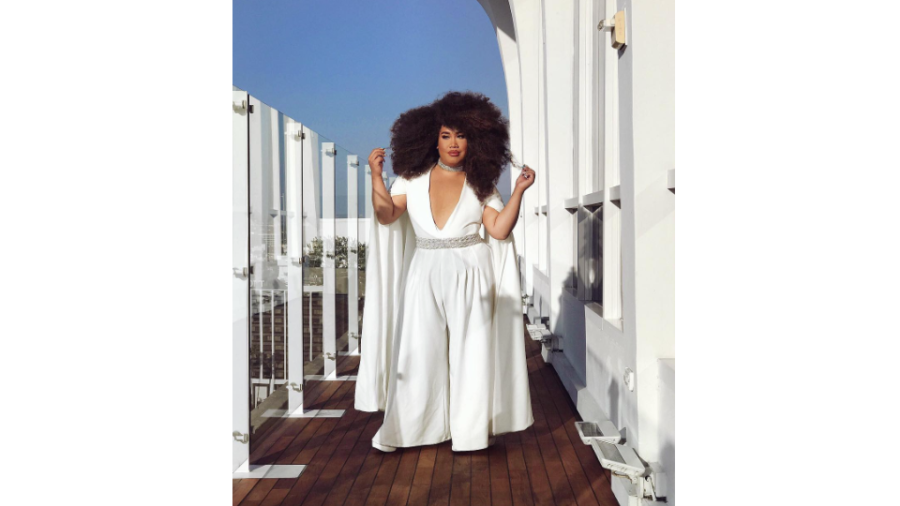When the pictures of Patrick Starrr initially appeared on my Twitter feed, I (perhaps, ignorantly) thought he looked amazing and captured Solange’s white wedding jumpsuit and cape look perfectly. The massive afro-like wig, noticeably bigger than Solange’s afro on her wedding day, made Starrr’s look iconic. In several tweets, Starrr unveiled his ensemble with captions referencing the Knowles sisters as well as “Peace. Love. Positivity.” The latter, he sadly did not receive.
Black women immediately filled Starrr’s mentions with claims of cultural appropriation. One tweet by @beautifuljas91 summarized critics feelings by saying, “Black women are not a costume. It’s good that you are flattered by her but we are not a costume and you could have did it without the Afro.” Reading this tweet and many more like it aided me in understanding my unexpectedly confusing, non- social justice warrior feelings on the issue.
Black women and children have faced discrimination for years in the workforce as well as public and private schools for the natural state of their hair being deemed “unprofessional,” “messy,” “nappy” or “ghetto.” Years of institutionalized discrimination in the United States has made it difficult for black women to accept their natural hair, leading them to buy weaves, perm and relax their hair and straighten their curls until they become heat-damaged and beyond repair.
Luckily, in recent years, natural hair has become widely accepted and encouraged; this I credit to the Black Girl Magic movement. The Black Girl Magic movement encompasses loving your melanin and the width of your nose, celebrating your successes, naturally collaborating and “vibing” with other black women and yes, even rocking your natural hair – no matter how kinky the curls or how large the fro. It is self-love.
When I decided to transition from straight, damaged shoulder-length hair to a bigger, healthier and curlier afro, it was simply due to my hatred of relaxers and how much my hair burned because of them. As I aged and matured along with the growth of my hair, I realized that I unconsciously catered to Eurocentric standards of beauty as a child; the most obvious way I did was by making the decision to perm and continue to straighten my hair. Notably, it is not my fault nor my mother’s for continuing to allow me to damage my hair. Having straight hair was simply the standard, but no one questioned why.
As my hair began to transform in high school, I became more aware of not only the stigma against natural hair, but also social justice issues pertaining to the Black Lives Matter movement that made me begin to see my hair as an act of resistance. Therefore, when non- black celebrities like Starrr, a Filipino male, put on a wig or imitate black women in any way, they do so without the numerous “consequences” or burdens that come along with waking up in black skin. Despite that, I must say that I do not entirely agree with criticism against Starrr.
After reading the flurry of angry comments, Starrr issued an apology to his 457 thousand Twitter followers stating, “I want to apologize for offending anyone with my hairstyle last night. I wanted to celebrate a beautiful hairstyle inspired by Solange. I am not in any way claiming to be black. I am Filipino and accepting and I hope we can all celebrate beauty/diversity together.”
Because he acknowledged that he is a Filipino man, did not appear to be mocking black culture and blatantly stated that his inspiration was Solange before the backlash, I do not consider his wig an act of cultural appropriation. However, that does not erase the feelings of other black women who felt otherwise and that is not to say that minorities cannot appropriate from other minority groups.
Notably, Aina implied in hostile-toned tweets to fans that Starrr asked for permission from Aina to wear the outfit, which leads me to say: If you have any doubt about wearing an outfit/costume or hairstyle inspired by someone of another race, save yourself the trouble and don’t.


























